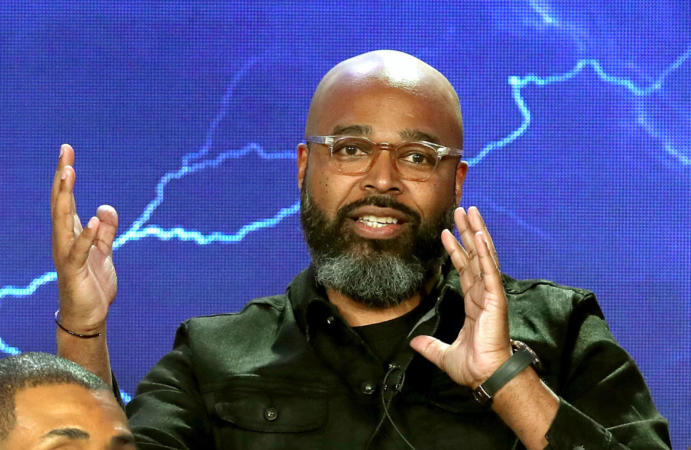Supporting Black stories in Hollywood goes beyond just sharing these creations amongst our community, it requires real action behind our words as well.
For TV director and “Black Lightning” creator Salim Akil, his mission in the entertainment industry involves championing both Black creators and creators of color who work behind the scenes to put these stories together.
The social reckoning that occurred back in June took a good look at Hollywood’s infrastructure and made a mass call for restoration to make the industry more diverse and inclusive.
Although that social moment in the summer lit a fire under Hollywood’s playmakers to begin making those necessary changes, creators like Akil have been telling Black and diverse stories far before then and the pandemic.
“The events of the summer gave some people who may have been a little reluctant to delve into those stories permission and/or the courage to go ahead and tell them,” he said.
In regards to producing said stories, Akil leaves that power up to the artists behind those projects to hold onto their creative control and generate what they feel viewers need to see on-screen.
“I’ve never been one to tell an artist what stories they should tell,” he shared. “I’ve always just told the stories that I felt were relevant to the culture and our people.”
Of the many diverse shows that debuted this year, “Black Lightning” — which first premiered in January of 2018 — is just one example of the burst of politically-charged shows that has maintained its reputation for tackling complex social issues like race, police brutality, and more.
Though the show is entering its fourth and final season early next year, “Black Lightning” will go down as a historical TV show that positioned Black figures as powerful beings in the sci-fi/superhero realm.
As one of the most critically-acclaimed TV series in recent times, the show is often regarded for its influential, cultural messages. However, its diverse storytelling from a technical standpoint is often overlooked in terms of what happens behind-the-scenes, according to Akil.
Akil’s masterful creation ran into its fair share of challenges, like a lack of Black stunt people for the show’s cast. However, the famed producer powered through and brought in a team of people to fill those spots.
In addition to the stunt crew, Akil also shares that he was able to recruit a team of Black men and women, as well as crew members of other racial backgrounds, to bring in their immense tech knowledge and contribute to these authentic stories on the small screen.
“The first images, title sequences, music, and special effects at some point are all touched by people of the culture who understand it,” he stated.
The other groundbreaking aspect about the production crew behind “Black Lightning” is the people who make up the hair and makeup department, writer’s room, camera crew, and cast.
“This was completely led by Black folk and you can see it and hear it on the screen,” Akil shared. “When you watch “Black Lightning,” you know there’s Black people cooking in the kitchen.”
Throughout his career, Akil has not only enjoyed watching the seeds he’s planted in his projects grow, but also those in the people around him — specifically those who have worked their way up in the business.
“There’s no greater feeling than to know that you sat in front of a computer and wrote something that became this thing that employed 300+ people,” he said.
The pandemic has proven to be challenging for many Hollywood TV shows and films going back into production, but shows like Akil’s “Black Lightning” have managed to weather the storm.
“I’m proud of that, that to me means more than any award,” he said in regards to continuing production during COVID-19. “I’m happy to be a part of something that was able to keep people working through this.”
Akil’s greatest joy about being a gamechanger in Hollywood has been yielding results for Black creators through thought-provoking content that continues to shift the culture.
“Regardless of storytelling, the secret sauce is that you have to tell stories that people can identify with,” Akil declared. “We do these things because we’re connected to the culture. We’ve pushed the envelope so much that people can now come into the [industry] and do whatever they want.”
Not only does “Black Lightning” kick off its final season in February 2021, but its spin-off pilot “Painkiller” — inspired by the show’s character — is also set to premiere in the new year as well.

